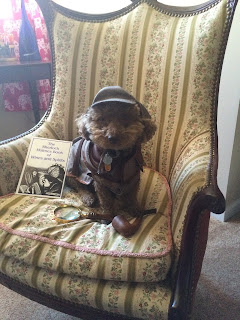Railroads in the 1860s were small scale local enterprises.
The Union army wanted priority treatment, but railroad managers still had an
obligation to maintain civilian traffic and make money. In January 1862, the
United States Congress authorized President Lincoln to seize control of the railroads and
telegraph for military use. Operations were turned over to the new War
Department agency called the U.S. Military Rail Roads (USMRR). Herman Haupt,
once the chief engineer, of the Pennsylvania Railroad, became chief of
construction and transportation in the Virginia theater of operations. He also
eventually attained the rank of brigadier general. Haupt’s Construction Corps emphasized speed,
rather than permanence, and his
well-organized trains kept the Union Army supplied, and carried thousands of
Union wounded to hospitals.
Trains traveled five times faster than mule-drawn wagons, which reduced the number of supply vehicles required. Faster travel meant cargoes arrived at the front in better condition. Troops traveling by train experienced less fatigue. Railroads boosted logistical output by at least a factor of ten having a profound impact on the outcome of the Civil War.
When defeated the Union army, an army supplied by rail, could often be reinforced before its Confederate enemies, supplied by wagons could exploit success. Confederate tactical victories seldom led to strategic gains.
A brief look at love, sex, and marriage in the Civil War. The book
covers courtship, marriage, birth control and pregnancy, divorce, slavery and
the impact of the war on social customs.



No comments:
Post a Comment